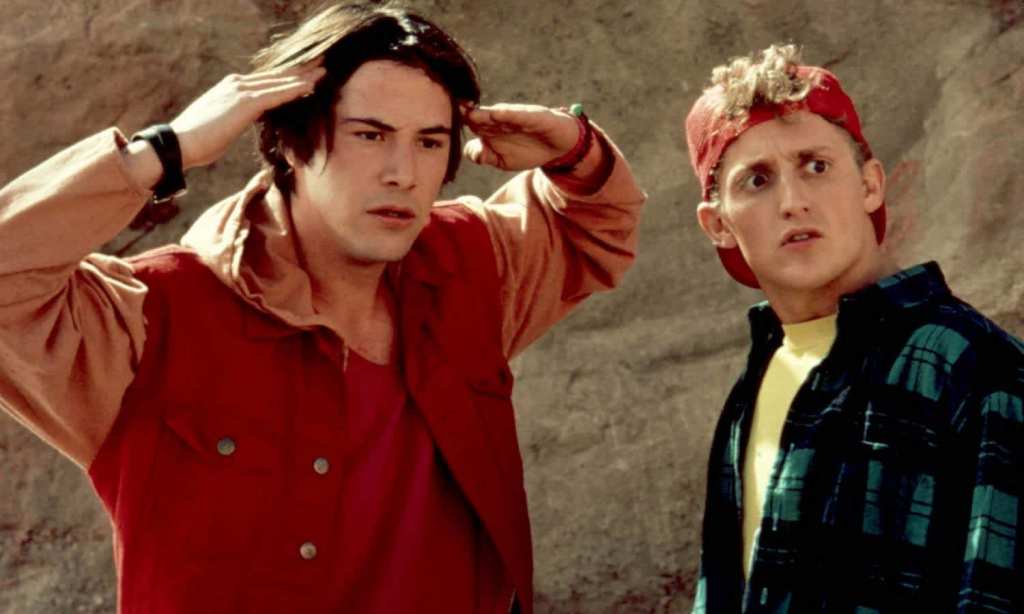In preparation for the release of Bill & Ted Face the Music, I, of course, went back to where it all started with 1989’s Excellent Adventure – and one scene in particular turned out to be a real brain tickler.
No, it wasn’t Joan Of Arc teaching an Aerobics class, nor the uncomfortably long montage of Napoleon sliding his way through Waterloo waterpark (although historical puns are the highest form of art), I’m talking about the mind-bending time travel logic that takes place at the San Dimas police station where Bill & Ted’s historical figure mates are being held for crimes against shopping malls.
Now, broadly speaking, time travel in movies follows one of two philosophies: first, change the past to change the future (think Back to the Future: if Marty McFly couldn’t get his parents to hook up, he would cease to exist); or second, the single continuum, a more cyclical approach to time travel where travelling to the past doesn’t change the future, it simply closes the loop on what technically already happened (think Terminator: Kyle Reese always was John Connor’s father).
Bill & Ted takes the latter, with a twist – “the clock in San Dimas is always running” – which simply means they can’t time travel their way around the due date of their history report.
It’s a nice twist that adds some tension, however, the real genius lies in the theoretical time travel taking place off-screen as part of their high concept prison-break plan.
If you’re not familiar with the scene, here it is:
https://www.youtube.com/watch?v=2jgg73d4kxM&t=147s
Did you watch it? I’m going to assume you watched it because I don’t have the word count to explain it – but it’s gosh darn genius, for three reasons:
1. It’s theoretically consistent: Based on the single continuum theory of time travel, they merely have to plan to time travel later in order to impact the present. It’s so simple that it’s absurd, yet it’s theoretically correct.
2. It all happens off-screen: You don’t see the time travel in question, you just see the result. You’re watching the impact of two different scenes unfold, one on-screen and one off-screen (and saving some special effects cash in the process)
3. It’s genius disguised as stupid: This is the clincher, the fact that something so high-concept is housed in a shell of such stupidity is where the true genius of the Bill & Ted movies lies.
This mix of such high-concept with extremely low-stakes is what makes Bill & Ted so refreshing to watch. It’s smart-dumb filmmaking at its finest.
Sure, time-travel movies can be dark, gritty and serious, but they don’t have to be! You can keep your Interstellers and Loopers – I’ll take Bill & Ted.
—
Tristan is one half of the Double Impact podcast, where, along with his mate Greg, are on a mission to re-watch every movie that meant something from their childhood. Each episode they review a ‘classic’ film from the 80s or 90s and determine how it stacks up in the modern era. (They use the term classic very loosely.)
You can listen to Double Impact with Tristan and Greg below.
Read more stories from TheLatch— and follow us on Facebook.

